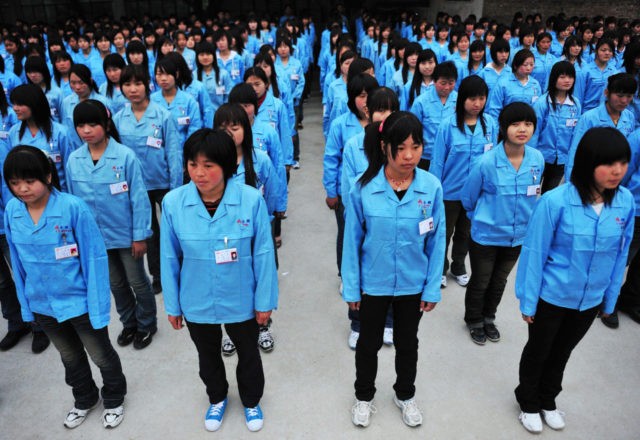The United States is in a digital cold war with China, according to the former chief information officer for the U.S. Department of Homeland Security.
Richard Staropoli, who was appointed by President Donald Trump and describes himself as generally supportive of free trade, argues that the U.S. needs to implement tariffs to stop China’s plan to dominate technology manufacturing “and they must be only the first step in safeguarding the technological interests of America and the world.”
“We are in a new cold war with Beijing, to retain control of the technology critical to the modern economy,” he writes.
Staropoli writes this is particularly important when it comes to 5G technology:
When word leaked out in January about the US government’s “moon shot” attempt to develop a nationwide 5G network, the initiative was met with confusion and ridicule. But this is the year that 5G moves from the drawing board to the real world. And to an unprecedented degree, China and Chinese equipment makers are taking centre stage in that 5G future. By one estimate, Chinese companies already own 10 per cent of the intellectual property deemed essential to 5G networks. This is in stark contrast to earlier generations, where underlying technology originated almost exclusively in Europe and the US.
As of now, China owns 10 percent of the intellectual property behind 5G technology. The figure has led some analysts to express concern as a result of China’s notorious reputation for internet censorship. Chinese internet users are forced to browse the internet behind China’s “Great Firewall” which blocks access to popular sites like Facebook, Google, YouTube, and Twitter. Some say that making sure that the United States remains a leader in internet technology safeguards the world from a redefinition of the web by China and its regressive censorship practices.
Earlier this year, Axios reported that the Trump administration was working on a proposal to protect next-generation 5G wireless service from Chinese predatory mercantilism. Many news outlets described this as “nationalizing” the 5G network, a term that is highly misleading. In fact, the administration’s plan was to undertake steps to assure that a private sector network would be made in America and not vulnerable to foreign espionage.
“US dominance online is an important strategic asset — not just for its direct economic benefits, but because homegrown businesses are more likely to reflect our values and priorities when it comes to internet governance,” Staropoli writes. “That’s not to say we all agree — just look at the recent scandal engulfing Facebook around the use of user data. But in the US we have the great luxury of debating these issues with Twitter, Facebook, Google and others.”
Staropoli warns that “we are in danger of giving away the internet market to companies beholden to the Chinese Communist party. If we do nothing, we’re not supporting free enterprise, we’re buying our way into economic servitude.”

COMMENTS
Please let us know if you're having issues with commenting.